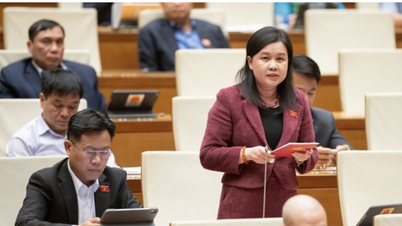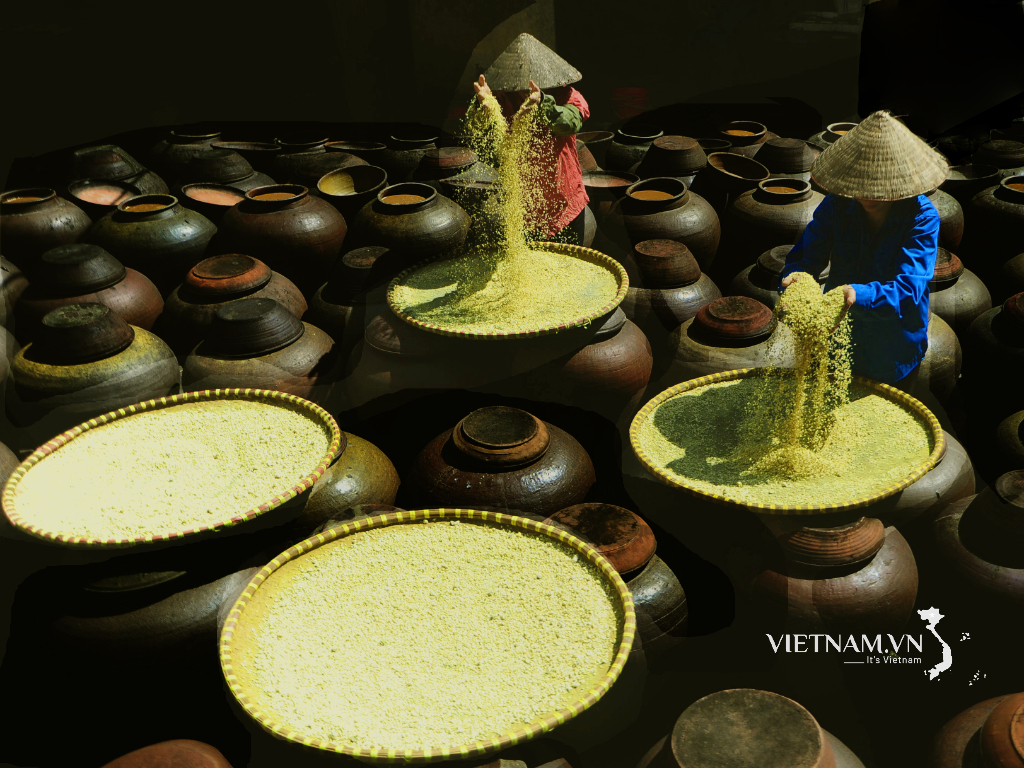According to Clause 5, Article 3 of the 2014 Law on Marriage and Family, “marriage is when a man and a woman establish a marital relationship with each other according to the provisions of this Law on marriage conditions and marriage registration”.
Marriage and family relationships are established and implemented according to regulations, respected and protected by law.
Prohibited acts, according to Clause 2, Article 5 of this Law, include:
“a) Shameful marriage, sham divorce;
b) Early marriage, forced marriage, fraudulent marriage, and obstruction of marriage;
c) A married person who marries or lives with another person as husband and wife, or an unmarried person who marries or lives with a married person as husband and wife;
d) Marriage or cohabitation as husband and wife between people of the same bloodline; between relatives within three generations; between adoptive parents and adopted children; between former adoptive parents and adopted children, father-in-law and daughter-in-law, mother-in-law and son-in-law, stepfather and wife's stepchild, stepmother and husband's stepchild;
d) Claims to property in marriage;
e) Forced divorce, fraudulent divorce, obstruction of divorce;
g) Performing childbirth using assisted reproductive techniques for commercial purposes, commercial surrogacy, fetal sex selection, and asexual reproduction;
h) Domestic violence;
i) Taking advantage of the exercise of marriage and family rights to traffic people, exploit labor, sexually abuse or commit other acts for the purpose of profiteering”.
In addition, according to Article 44 of the 2015 Penal Code, citizens sentenced to imprisonment for crimes against national security or other crimes in cases prescribed by this Code shall be deprived of one or more of the following civil rights: The right to run for election as a representative of State power agencies; the right to work in State agencies and the right to serve in the People's Armed Forces. Therefore, people serving prison sentences enjoy civil rights except for some rights deprived by law or the court.
Thus, the freedom to marry of a person sentenced to imprisonment is not deprived under the provisions of the Penal Code and is not prohibited under the provisions of the Law on Marriage and Family.
There are currently no specific regulations on limiting the right to marry of people serving prison sentences. If the conditions for marriage are met under Article 8 of the 2014 Law on Marriage and Family, in principle, people serving prison sentences are not prohibited from marrying.
The conditions for marriage are that men must be 20 years of age or older, women must be 18 years of age or older; the marriage is voluntarily decided by men and women; not having lost civil capacity; the marriage does not fall into one of the cases prohibited from marriage according to regulations such as fake marriage, forced marriage, fraudulent marriage...
However, the marriage registration procedure is stipulated in Article 18 of the 2014 Law on Civil Status as follows:
“1. The man and woman submit a marriage registration form according to the prescribed form to the civil registration office and must be present when registering the marriage.
2. Immediately after receiving all the documents as prescribed in Clause 1 of this Article, if the marriage conditions are met as prescribed by the Law on Marriage and Family, the civil status official shall record the marriage in the Civil Status Book and have both the man and woman sign the Civil Status Book. Both the man and woman shall sign the Marriage Certificate; the civil status official shall report to the Chairman of the People's Committee at the commune level to organize the handover of the Marriage Certificate to the man and woman.
In case it is necessary to verify the marriage conditions of both the man and woman, the processing time shall not exceed 05 working days.
Thus, in principle, both the man and woman must submit a marriage registration form and be present when registering their marriage, and sign the Marriage Certificate together . Although the law does not deprive those who are serving prison sentences of their right to marry, because they are under the State's management, detention, and re -education , it is very difficult to get them to comply with the mandatory regulations on marriage registration procedures as mentioned above in practice.
Minh Hoa (t/h)
Source














































































































Comment (0)